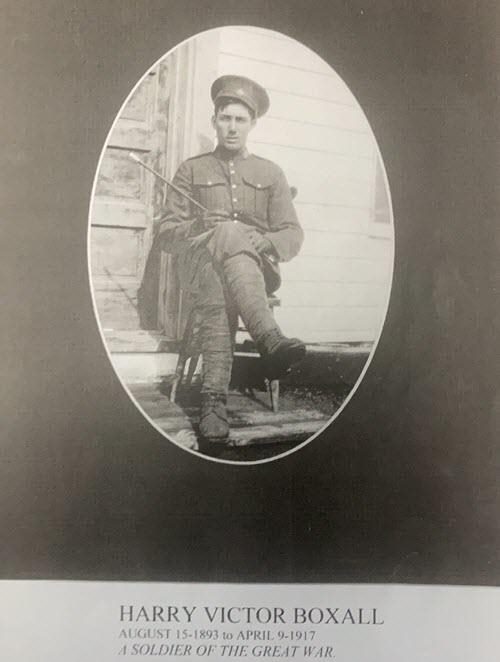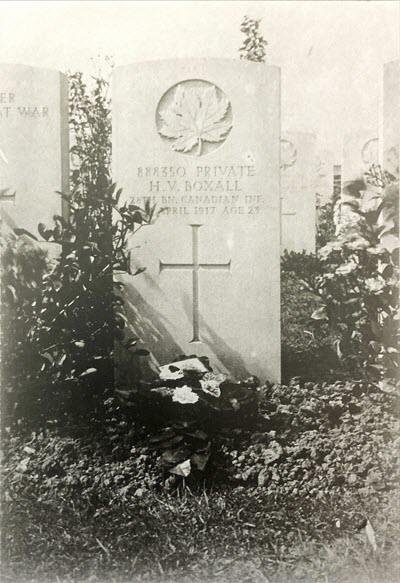Ian Boxall’s great uncle died at Vimy Ridge
By Diego Flammini
Staff Writer
Farms.com
Ian Boxall never met his great uncle, Harry, in person, but knows about his contributions to the war efforts during the First World War.
“My family has done up a book on Harry, which has letters from his siblings and letters he wrote from the war,” Boxall, a farmer and vice president of the Agricultural Producers Association of Saskatchewan, told Farms.com. “He had nine siblings. He was the oldest and my grandpa was the youngest.”
Private Harry Victor Boxall, born Aug. 15, 1893, enlisted with the 188th battalion on April 19, 1916 in Tisdale, Sask. He completed training at Camp Hughes in Manitoba before being sent to Vimy Ridge in France.

Boxall family photo.
He documented the conditions at Vimy Ridge in letters he wrote home.
“He talked about being on trench duty near the front lines,” Ian said. “He talked about how cold the rain was, then a few letters later he talked about how he was relieved from trench duty so he could get some rest. I can’t imagine how taxing trench duty would’ve been, listening to the gunfire all around you.”
Harry died one year to the day of his enlistment, on April 19, 1917 during the Battle of Vimy Ridge, which claimed the lives of 3,598 Canadians and left 7,000 more wounded. He was 23-years-old.
Private Boxall and 377 fellow Canadian soldiers are buried at Nine Elms Military Cemetery in Pas de Calais, France.

Private Harry Boxall's grave at the Nine Elms Military Cemetery in France.
Boxall family photo.
Prior to his military service, he grew up on the family farm and would ask about the farm when writing letters home.
“He wrote some of his letters to his mom (Mary),” Ian said. “And in some of them he mentions that dad (Henry) and the men must be plowing, and that he missed being home, which for a farm kid is the farm. I imagine he was very involved with the farm before he left as it would’ve been very labour intensive.”
The farm Harry grew up on is the same farm Ian and his family call home today.
Harry’s father, Ian’s great grandfather, homesteaded the home quarter in Tisdale in 1904 for $10.
Growing up on a farm would’ve provided a good foundation for military service, Ian said.
“Farm boys probably showed up with a work ethic that was second to none,” he said.
Finding the words to properly thank soldiers is difficult.
But on this Remembrance Day, Boxall hopes people will take some time to reflect and acknowledge the sacrifices made in the past and how they’ve helped shape the world.
“These soldiers were fighting with soldiers that, at the time, were enemies and now they are our allies,” he said. “As these wars and battles become more distant in our history, we have to make sure we don’t lose sight of the importance of Remembrance Day.